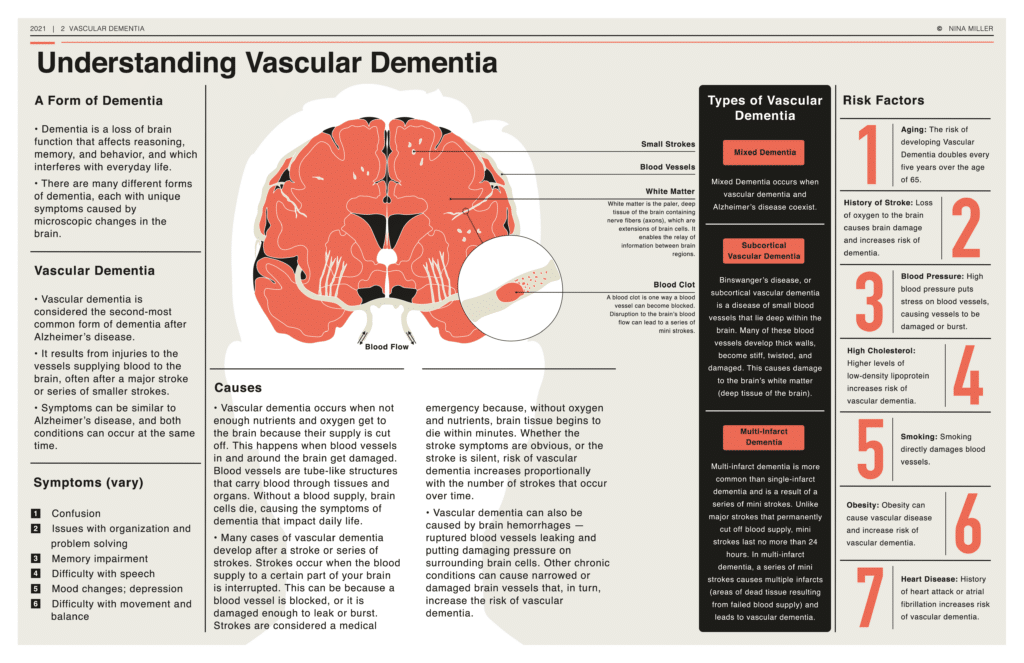Vascular dementia, considered the second most common form of dementia after Alzheimer’s disease, results from injuries to the vessels supplying blood to the brain, often after a stroke or series of strokes. Vascular dementia occurs as a result of risk factors that similarly increase the risk for cerebrovascular disease (stroke), including atrial fibrillation, hypertension, diabetes, and high cholesterol. The symptoms of vascular dementia can be similar to those of Alzheimer’s, and both conditions can occur at the same time. Symptoms of vascular dementia can begin suddenly and worsen or improve during one’s lifetime.
Research has shown that Alzheimer’s and vascular disease-associated cognitive impairment are closely intertwined. For example, a large proportion of people diagnosed with Alzheimer’s also have brain damage caused by vascular disease. In addition, several studies have found that many of the major risk factors for vascular disease may also be risk factors for Alzheimer’s.
The overlap between these two types of dementia may be important because medications and lifestyle changes known to help prevent vascular disease, such as controlling high blood pressure, lowering cholesterol, and engaging in physical activity, may also help prevent Alzheimer’s disease.
What treatment is available?
Although treatment can help manage symptoms in some people, currently there is no cure for this vascular dementia. Sometimes doctors will prescribe memory medications that are often prescribed for people with Alzheimer’s Disease. Learn more about medications prescribed for memory from the Alzheimer’s Association. Beyond memory medications, some people with Vascular Dementia may benefit from medications to help with anxiety or depression, should they experience mood changes. Other illnesses that affect the brain, such as diabetes, high blood pressure and high cholesterol, should also be treated if present.
Beyond medications, it’s important to stay mentally, socially, and physically active to help with cognition. Learn more about ways to optimize your brain health from AARP’s Global Council on Brain Health. Research has shown physical exercise, a heart-healthy diet, limiting alcohol intake, getting good sleep, mood management, and staying socially and mentally active, to all optimize brain health.
